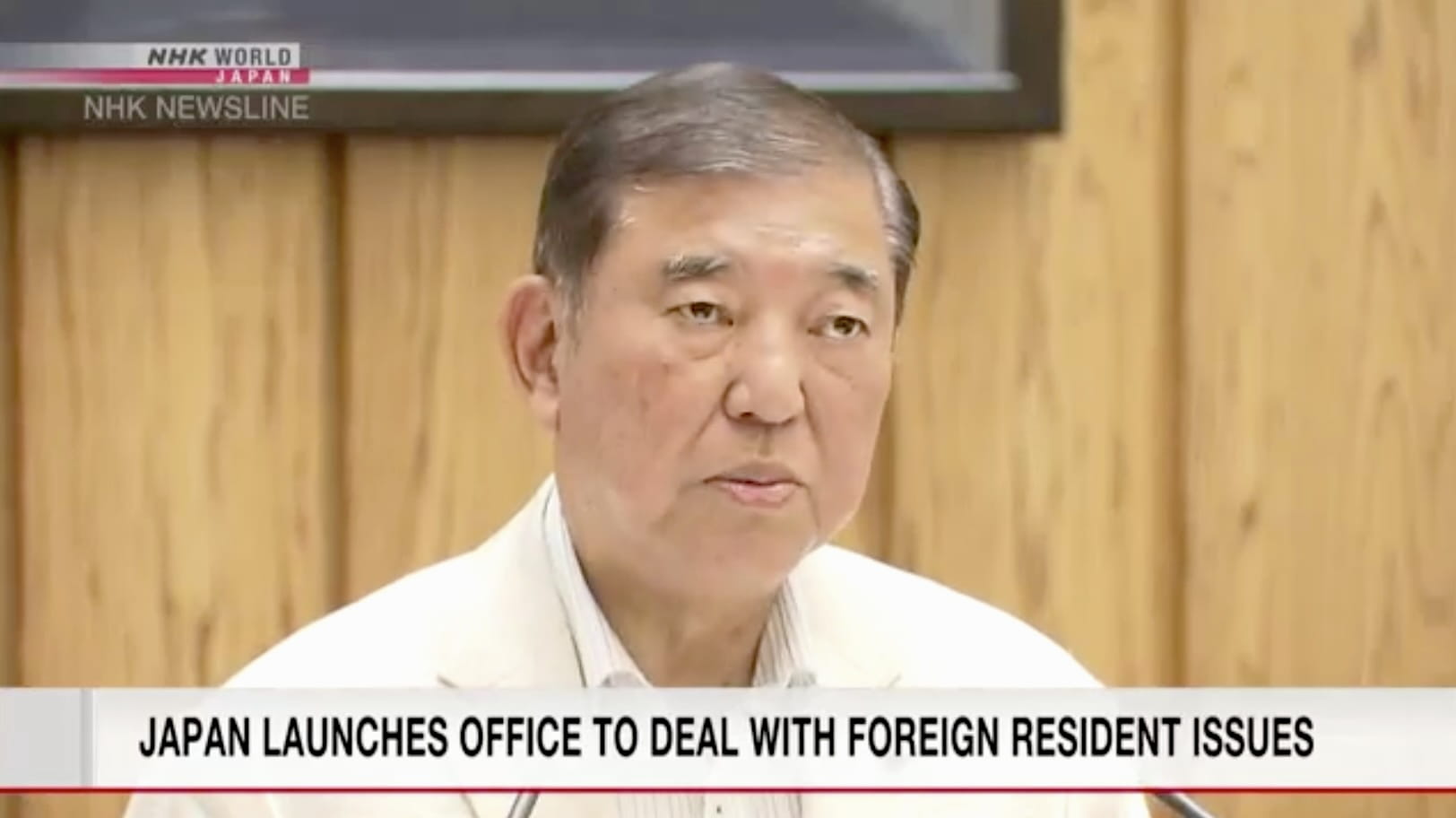
Facing increasingly severe issues of population aging, declining birth rates, labor shortages, and insufficient workforce, many human resources companies are mediating Southeast Asian laborers, and a large number of foreigners enjoy working remotely while sightseeing in Japan. This can solve labor shortages while contributing to GDP, but the large influx of foreigners into Japan has already had a strong impact on Japanese society, with continuous public protests being sent to the media. The Japanese government has recently established the Foreign Order Coexistence Society Office (外国人の秩序共生社会推進室) to properly address foreign immigration issues. The following is a comprehensive report.
Japanese public anxiety; the office for foreigners specifically addresses various issues.
The new office established to address foreigner issues is directly under the Cabinet Secretariat, composed of officials from the Cabinet Office, the Ministry of Justice, and other agencies, responsible for coordinating foreign-related policies and systems. The office's establishment ceremony was held on Tuesday at the Prime Minister's residence, where Prime Minister Ishiba Shigeru pointed out that Japan is experiencing the dual pressures of declining birth rates and an aging population, and that foreign labor is a resource that cannot be ignored. He emphasized the need to accept foreign labor to a certain extent, promote spending by foreign tourists, and boost the economy.
However, Ishiba Shigeru also admitted that various issues caused by foreigners in Japanese society are causing national anxiety, including crime, abuse of the system, and daily friction. He instructed the new office to conduct an in-depth investigation into the current activities of foreigners, reviewing whether the existing system still meets actual needs and making adjustments if necessary. He also emphasized the need to strengthen the information-sharing mechanism to promote coordination and cooperation between central and local governments.
The foreign population in Japan is rapidly growing, with a significant gap between societal perceptions and data surveys.
According to an expert discussion from NIKKEI NEWS NEXT, the number of foreigners residing in Japan for more than 90 days has reached approximately 3.769 million, equivalent to one foreigner for every 33 people. This number has rapidly increased with the establishment of the 'Special Skills' residency status, and many previously non-rental communities are beginning to see the footprints of foreign residents. Based on the development of this data, could it be that in the future, one in ten people in Japan will be a foreigner?
Morihiro Tada, president of Persol Global Workhorse, pointed out that although Japanese society has traditionally had a lower acceptance of multiculturalism, the pressures of the labor market have forced Japan to confront this reality.
On social media, comments about foreigners 'taking advantage' have been spreading continuously. According to data from the Ministry of Health, Labor and Welfare cited in a discussion video, the actual burden of foreigners on national health insurance is comparable to that of Japanese citizens, with an insurance payment rate of 63%. In terms of medical subsidy expenditures, foreigners account for only 1.39% of total costs, which is significantly lower than their population proportion, indicating limited actual expenditures.
In terms of social welfare, in 2023, only 2.9% of foreign households received social assistance, far below the claim of 'one-third' circulated on social media. Regarding the crime rate among foreigners, it has continued to decline since 2005, which is clearly inconsistent with the societal perception of a surge in foreign crime.
Japanese First? The issue of foreign immigration becomes a focal point.
In response to the high public concern in Japanese society regarding foreigners, political parties have begun to adjust their positions. The Liberal Democratic Party emphasizes imposing restrictions on foreigners owning real estate, while emerging political parties explicitly state 'Japanese first' and advocate for limiting the acceptance of foreigners. In contrast, progressive factions, including the Communist Party and the Reiwa Shinsengumi, advocate for protecting the basic rights of foreigners and promoting social integration. Notably, a new political party, the Sanmin Party, is emerging, strongly protesting against Japan's existing foreigner policies; this party was established during the COVID-19 pandemic in 2022.
According to Nikkei News reporter Riku Tanaka, foreigner policy has long been a sensitive topic that political parties have avoided discussing, but it has now come to the forefront of elections, indicating that public pressure is gradually forming. He stated that the launch of this policy, while seemingly rushed, is a response to online public opinion and domestic anxieties.
Although data shows that foreigners have not yet become a threat to the Japanese public, private anxiety has not subsided. Morihiro Tada believes that Japan needs to establish clearer information dissemination and social education mechanisms to help the Japanese public understand the actual role of foreigners in Japanese society. He argues that this is not merely a statistical issue but a tug-of-war between system design and social acceptance.
Will one in ten people in Japan be a foreigner 20 years from now? Ishiba Shigeru establishes a new office to address foreign immigration issues, first appearing in Chain News ABMedia.
